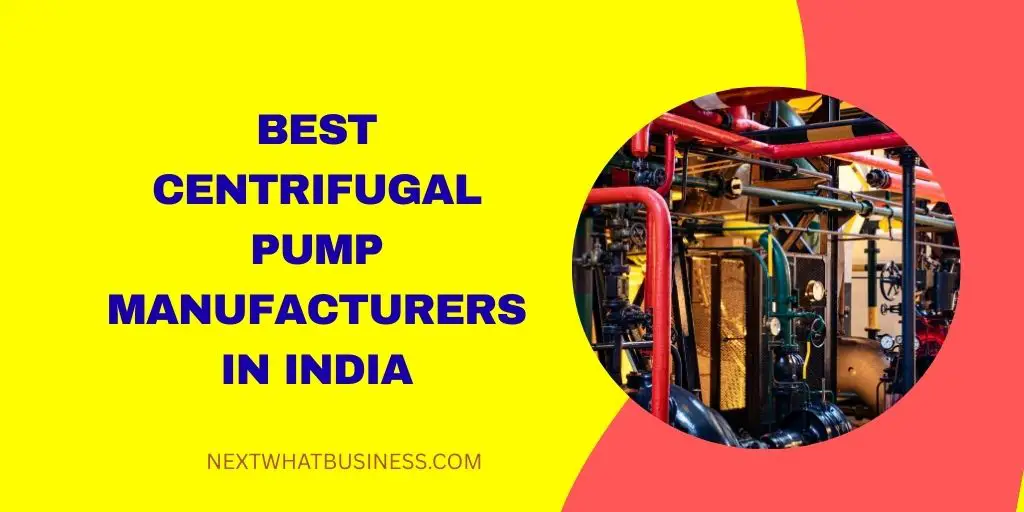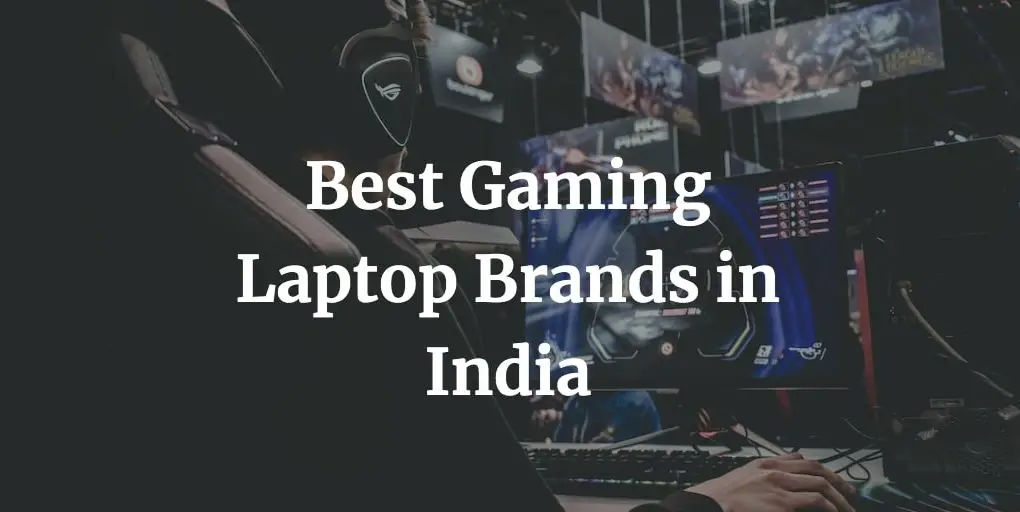Choosing a centrifugal pump in India isn’t just about picking something shiny from a catalogue. Every supplier claims to make the “best” centrifugal pump, but unless they back it up with real curves, local service, and long-term support, you’re buying more trouble than value.
That’s where picking the right centrifugal pump manufacturers in India matters big time. The Indian market is booming—just look at this: The India Industrial Pump Market size is estimated at USD 0.97 billion in 2025, and is expected to reach USD 1.23 billion by 2030. In fact, India grabbed around 8.5% of the global centrifugal pump market share in 2024—so yeah, this isn’t a niche segment anymore; it’s a statement of how vital these machines are right now.
So this guide isn’t just another listicle—it’s a grounded, slightly opinionated breakdown of how to choose smart, avoid common pitfalls, and who (among Indian manufacturers) is actually worth your time at present.
Table of Contents
How to Pick a Centrifugal Pump Without Losing Sleep
Here’s the thing: no matter how glossy the brochure, your pump’s success comes down to how well the manufacturer’s design matches your real-world duty point. The best centrifugal pump manufacturers don’t just throw catalogues at you; they actually provide proper duty-point efficiency curves, installation guidance, and after-sales support.
Match the pump family to the job.
- End-suction for buildings, hotels, and booster duty.
- Split-case double-suction for water transmission or cooling plants.
- Vertical turbines for deep wells or intakes.
- Multistage for high-pressure stuff like boiler feed or RO.
- Non-clog impellers for sewage.
Engineer for the water you actually have. In India, raw water’s never textbook clean. Check sand, chlorides, pH, and temperature. A shiny stainless impeller may look premium, but it’ll pit badly if chlorides are high. Sometimes, boring old cast iron with a protective lining outlasts “fancy” alloys.
Think energy first. I’ve seen pumps sold 15% cheaper but costing 40% more in electricity over five years. Electricity isn’t getting cheaper, so don’t fall into that trap.
Avoid the classic oversizing blunder. Many consultants add “safety margins” and end up installing a pump that’s forever throttled. Better option: right-size it, pair with a VFD, and leave some trim margin.
And please—don’t neglect the system bits. A poorly designed suction line will wreck even the best German or Indian pump.
India’s Pump Industry: A Quick Reality Check
In India, the centrifugal pump industry is really a two-speed game. On one side, you’ve got domestic and agriculture-focused centrifugal pump manufacturers—they build millions of borewell submersibles and monoblocks every year. On the other side, there are the heavyweights that supply engineered split-case and vertical turbine pumps for municipalities, industries, and mega water projects.
Knowing which side of this divide you fall into as a buyer is half the battle.
We basically have two worlds here:
- Domestic/agri-focused brands—they churn out millions of submersibles and monoblocks every year. Farmers swear by them.
- Industrial/municipal heavyweights—they handle big stuff: split-case, engineered vertical turbines, sewage monsters.
If you’re a farmer upgrading irrigation, you’ll care about after-sales service and motor efficiency. If you’re a utility engineer handling a water intake for a city, you’ll care about CFD-validated suction bells and vibration signatures. The players are different, the priorities are different.
The 12 Centrifugal Pump Manufacturers That Actually Matter
Let’s be honest—India has hundreds of pump companies, but only a dozen or so are consistently worth shortlisting if you’re serious about performance and support. Here’s my take:
1. Kirloskar Brothers Limited (KBL)
The grand old name. KBL pumps range from small monoblocks to giant concrete volute pumps for flood control. They’ve got a reputation with utilities, EPC contractors, and irrigation projects. Are they perfect? No—sometimes delivery schedules slip—but if you want breadth and proven references, Kirloskar’s hard to ignore.
2. KSB India
German engineering with Indian manufacturing muscle. Their split-case and process pumps are robust, well-documented, and built to last. I’ve always found their test data reliable, which is sadly not something you can say for every OEM. For power plants, industrial water, or HVAC, KSB is a safe bet.
3. C.R.I. Pumps
If you’ve ever seen a borewell in South India, chances are it’s running on a C.R.I. pump. They dominate agriculture and domestic markets but have a surprisingly wide industrial lineup too—multistage, sewage, booster sets. Not the fanciest, but their service reach is a lifesaver in rural areas.
4. Shakti Pumps
These guys made their name in stainless-steel submersibles and then doubled down on solar pumping. They push hard on “energy-efficient” branding, and honestly, for solar irrigation, they walk the talk. Their vertical multistage pumps for water supply are also decent, especially if you care about aesthetics and stainless wetted parts.
5. Lubi Industries
Lubi is like that brand that quietly does everything—end-suction, fire sets, split-case, chemical-duty thermoplastic pumps. They’re not always top of mind, but they’ve got a very practical, wide portfolio that suits contractors who don’t want to juggle multiple suppliers.
6. Texmo Industries (Taro / Aquatex)
Farmers love them. Texmo is a household name in many parts of India. Their pumps are rugged, no-nonsense, and widely serviced. If you’re running a housing society water system or a farm borewell, Texmo (or their Taro/Aquatex lines) is a safe, almost default choice.
7. WPIL Limited
When it comes to municipal water, WPIL is a serious player. They make massive vertical and horizontal pumps, non-clog sewage types, and even engineered submersibles. Their stuff is heavy-duty, meant for city projects and irrigation schemes, not your bungalow garden.
8. Jyoti Ltd.
Known for their sewage and slurry-handling expertise. I’ve seen their pumps perform decently in tough wastewater conditions. They might not have the marketing glitz, but when it comes to dirty water, Jyoti knows what it’s doing.
9. Flowmore
These folks are specialists in “big water”—municipal transmission, cooling water, irrigation lifts. Their split-case and vertical turbines are engineered with maintainability in mind. If you’re an engineer who values easy rotor lift-outs, Flowmore deserves a look.
10. Wilo India (Mather & Platt heritage)
Great for buildings, HVAC, and fire systems. Their global controls stack is slick—pressure boosting systems that just work out of the box. If you’re an MEP consultant or a high-rise developer, Wilo makes your life simpler.
11. Kishor Pumps
Not everyone needs them, but if you’re in chemicals or corrosive wastewater, Kishor is worth knowing. They’ve got niche expertise in materials—plastics, exotic alloys—that survive where others corrode.
12. Sintech Pumps
Mid-sized industrial player, good for wastewater and multistage duties. They don’t have the branding of KSB or Kirloskar, but I’ve seen their pumps hold up fine in sugar plants and industrial utilities.
Quick Picks: Matching Use Cases with the Right Manufacturers
- High-rises and hotels: Wilo, KSB, C.R.I., Lubi
- City water projects: Kirloskar, WPIL, Flowmore
- Sewage handling: Jyoti, Kishor, KBL, Sintech
- Borewell irrigation: Texmo, Shakti, C.R.I., Suguna
Notice how different centrifugal pump manufacturers dominate different niches—it’s not about “one best brand” but about fit.
What Pumps Really Cost
A 30-kW pump running 24×7 burns through ₹21 lakh in electricity every year. Read that again. That’s why quibbling over a ₹50,000 cheaper pump is shortsighted. A 5% efficiency gain will save you a lakh a year—forever.
So yes, spend more upfront if it buys you efficiency at your duty point (not the catalogue’s show-off peak). Add a VFD, too—it’s not a luxury anymore.
Common Buyer Mistakes
Oversizing “just in case” and throttling forever.
- Ignoring suction design (no, you can’t put an elbow right on the pump suction and expect magic).
- Choosing metallurgy by habit, not chemistry. Chloride water eats stainless steel alive if you’re careless.
- Forgetting spares and service. A pump without local service support is basically a ticking time bomb.
Final Thoughts
Here’s my blunt take: Every one of the mentioned brands above makes good pumps. The difference is in how you spec it, how you install it, and whether you can get parts and service when things go wrong.
So don’t just fall for the glossy marketing. Call the OEM reps, grill them on duty-point efficiency, check their local service presence, and ask to see a reference installation. If they hesitate, that’s your red flag.
Pick carefully, install properly, and maintain religiously—and your centrifugal pump will hum quietly for years. Do the opposite, and you’ll be cursing seals and bearings every other month.
More Articles on Best Manufacturing Companies in India:
FAQs on Centrifugal Pump Manufacturers in India
Who are the top centrifugal pump manufacturers in India right now?
If we’re talking scale and reputation, names like Kirloskar Brothers, KSB Pumps, C.R.I., Shakti Pumps, Texmo, WPIL, and Lubi consistently stand out. They dominate different niches—Kirloskar for municipal/industrial projects, Texmo for agriculture, and Wilo/KSB for urban water and HVAC systems.
How do I compare centrifugal pump manufacturers before buying?
Don’t just go by brand name. Check:
- Efficiency curves at your actual duty point.
- After-sales network in your region.
- Material of construction (SS, CI, bronze, duplex) depending on fluid handled.
- Delivery lead times (projects often get delayed here).
A good manufacturer won’t hesitate to share test data or performance certificates.
Are Indian centrifugal pump manufacturers globally competitive?
Yes, many Indian companies now export aggressively. Firms like Kirloskar, WPIL, and Shakti Pumps sell in Africa, the Middle East, and even Europe. Indian pumps are often 15–20% more cost-effective than European brands, while still meeting ISO/API standards in many cases.
Which centrifugal pump manufacturers are best for agriculture?
For borewell and irrigation pumps, Texmo, C.R.I., Shakti, and Suguna dominate the rural/agri market. They have service centers across Tier-2 and Tier-3 towns, which makes maintenance a lot easier for farmers.
Why do prices vary so much among centrifugal pump manufacturers?
Simple answer: it’s about design efficiency, metallurgy, and support. A cheap pump may save you a lakh upfront, but if it wastes power or breaks down every six months, your operating cost balloons. The established centrifugal pump manufacturers usually price higher, but they back it with energy savings and reliable service.
Should I buy directly from centrifugal pump manufacturers or local dealers?
For standard pumps (agriculture/domestic), local dealers are fine and often faster. But for large industrial or municipal projects, it’s smarter to go straight to the manufacturer’s project division—they’ll handle sizing, installation support, and warranty more tightly.

NextWhatBusiness Research Desk represents the editorial research function at NextWhatBusiness.
Content published under the desk is based on independent research, operator-level observations, and analysis of small, medium, and franchise-led business models in India.
The focus is on practical decision-making — including capital requirements, operational effort, and risk factors — rather than promotional or brochure-driven information.
Some articles reflect editorial judgment based on observed patterns and may include opinionated analysis where appropriate.
Editorial oversight is provided by Rupak Chakrabarty, Editor, NextWhatBusiness.



